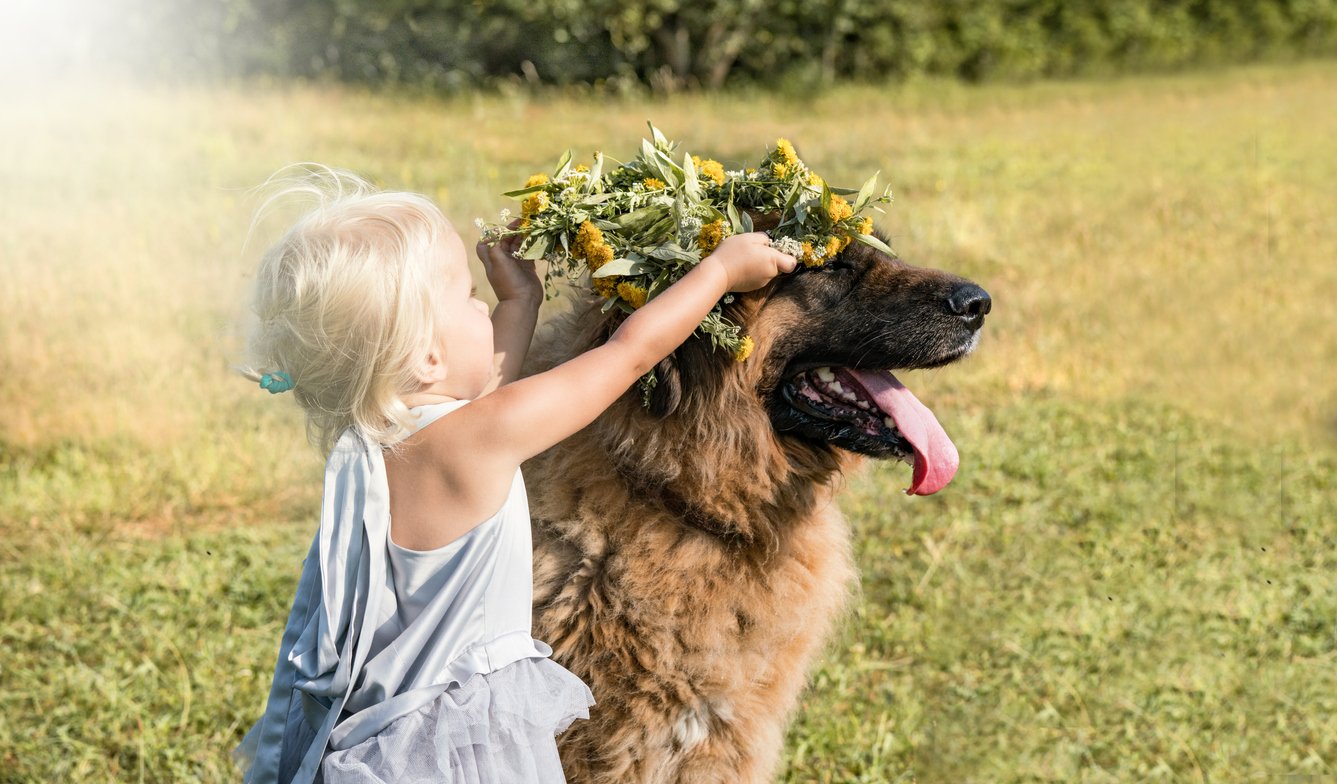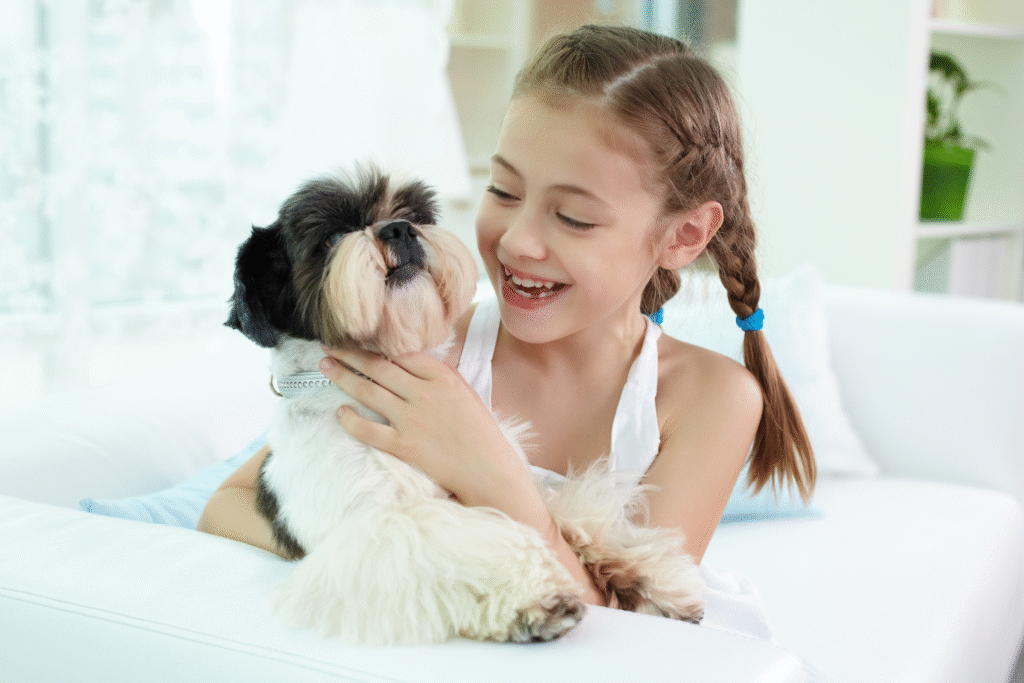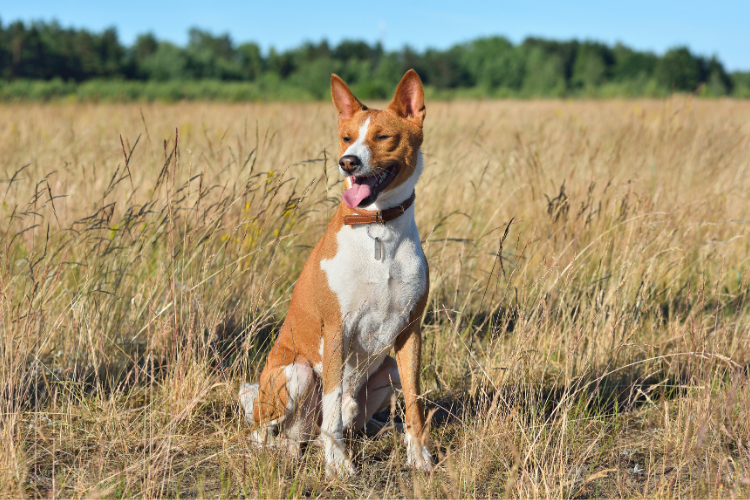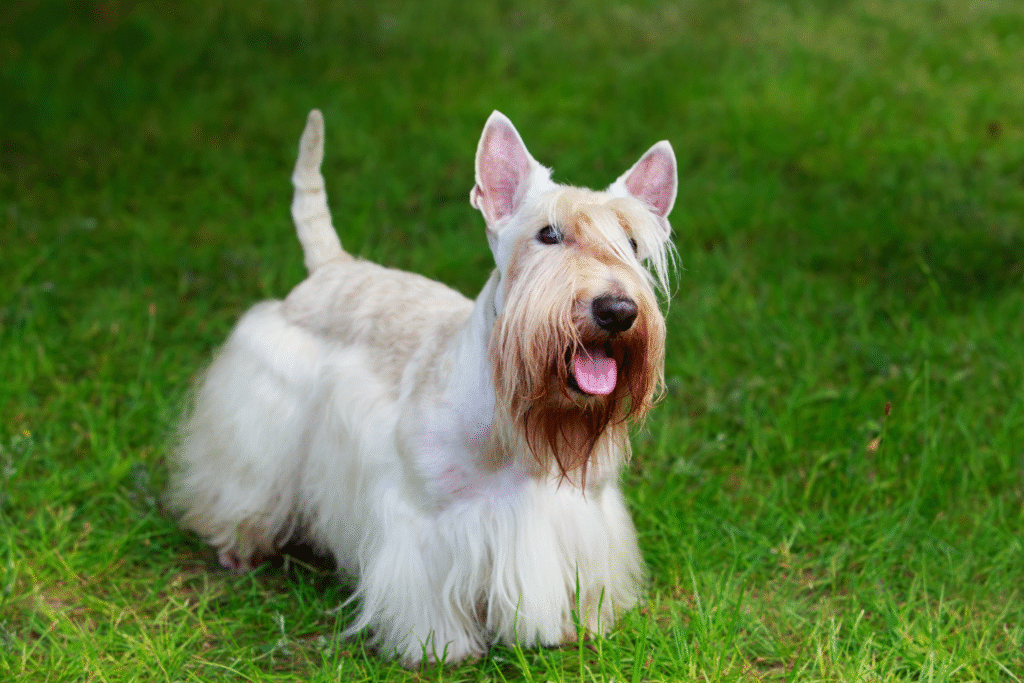Some breeds endure children with more patience than joy.

Not every dog is built for the chaos of family life. Some tolerate the poking, squealing, and unpredictable movements of children only because they have the temperament to endure it, not because they enjoy it. These breeds may look calm and composed, but under the surface they crave quiet and control. Their patience often fools people into thinking they adore kids, when really they are just putting up with them. Knowing which dogs fall into this category matters, especially when families assume tolerance equals affection.
1. Afghan Hounds prefer elegance over noisy companions.

Afghan Hounds are striking, aloof, and far more interested in maintaining their independence than dealing with children’s antics. They tolerate affection but often pull away when overwhelmed by constant touching. The American Kennel Club lists them as dignified and independent, traits that don’t always mesh well with kids’ unpredictability. Owners often find that Afghans will retreat to quieter rooms when playtime becomes too loud. Their tolerance comes from patience, not enjoyment, which makes them best suited to homes where kids respect boundaries.
2. Chihuahuas often feel overwhelmed by children’s energy.

Small in size but strong in personality, Chihuahuas rarely appreciate the unpredictable movements of young kids. Their loyalty tends to focus intensely on one adult, leaving little patience for others. These dogs are known for snapping when startled or handled roughly, reported by the American Veterinary Medical Association. While they may tolerate older children who know how to interact respectfully, younger kids can easily cross their comfort lines. Their endurance should not be mistaken for joy—it’s more about survival in a household they can’t control, AVMA notes.
3. Shih Tzus endure chaos but secretly want calm.

Known for their affectionate nature with adults, Shih Tzus are less enthusiastic about constant rough handling from children. Their small size makes them fragile, and their tolerance often hides a longing for peace. As discovered by the American Kennel Club, they thrive best in calm households where companionship feels balanced rather than chaotic. With kids, they put up with the noise but often escape to quieter corners when given the chance. Families sometimes confuse this quiet withdrawal with indifference, when in fact it’s a signal that tolerance has limits.
4. Basenjis are too reserved to enjoy childish antics.

Basenjis are famous for their independence and catlike behaviors, qualities that rarely align with children’s noisy energy. They are not aggressive toward kids, but they also don’t actively enjoy being in the middle of constant activity. Instead, they observe from a distance, offering tolerance without eagerness. Their quiet, reserved nature makes them better suited for households with respectful, older children. While they rarely lash out, their aloofness makes it clear that children are not their preferred company.
5. Chow Chows value space more than playful company.

Chow Chows are naturally protective and deeply loyal to their families, yet they don’t typically enjoy chaotic environments. Their dignified personalities make them less tolerant of grabby hands and sudden movements. While they will tolerate children within their circle, they rarely seek out interaction. Visitors’ children, in particular, may be met with indifference or avoidance. Chows prefer calm households, where their watchful loyalty feels valued rather than tested by constant commotion. Their tolerance is steady but never enthusiastic.
6. Lhasa Apsos accept kids quietly but prefer adults.

Originally bred as watchdogs in Tibetan monasteries, Lhasa Apsos carry a natural suspicion of strangers and a strong sense of independence. Children’s unpredictable behavior can make them uneasy, but they often endure it out of loyalty to their families. They are more interested in bonding with adults, where the interaction is calmer and more predictable. This breed’s tolerance of kids is more about restraint than joy, as they often retreat once they’ve had enough. Their quiet acceptance can fool people into thinking they enjoy children when they don’t.
7. Weimaraners get restless with children’s unpredictable energy.

Weimaraners are intelligent, high-energy dogs that need structure and purpose. Children’s random movements and chaotic play can frustrate them, though they rarely lash out if properly socialized. Their tolerance comes from obedience training and attachment to their family, but they often long for direction instead of disorder. Owners sometimes notice that their Weimaraner circles around kids nervously rather than joining in. It’s not dislike, but it’s not joy either. Their calm around children is built more on discipline than natural affection.
8. Pekingese endure handling but lack real enthusiasm for it.

Bred as lapdogs for Chinese royalty, Pekingese are more suited for quiet admiration than rough play. Their small frames make them vulnerable to grabbing hands, and their proud personalities mean they rarely enjoy being treated like toys. They tolerate children when necessary, but it is clear they would rather lounge in a quiet lap. Parents with Pekingese often notice the dogs gravitate toward adults while avoiding noisy play areas. Their tolerance is dignified, but their affection is carefully chosen.
9. Scottish Terriers handle children with strict boundaries.

Scotties are known for their independence and stubborn streaks. While loyal to their owners, they do not easily adapt to children who push boundaries. They tolerate respectful interaction but can snap if handled roughly. Their endurance with kids is rooted in discipline, not affection. Families who raise Scotties with children must teach both sides to respect space. When that balance is maintained, Scotties will coexist quietly, though their true preference often lies in quieter, more orderly interactions.
10. Akitas put up with kids out of loyalty.

Akitas are powerful, protective dogs that remain deeply loyal to their families. They will tolerate children within their household because of that loyalty, but strangers’ kids are often viewed with suspicion. Their calm nature hides the fact that they prefer peace and predictability over noisy play. Owners often report that Akitas quietly withdraw when kids get too rowdy, choosing distance over confrontation. Their tolerance is steady but should not be mistaken for warmth—they remain more committed to loyalty than playfulness when it comes to children.
